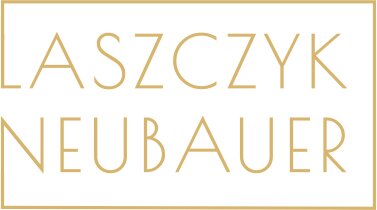Best Collaborative Law Lawyers in Koszalin
Share your needs with us, get contacted by law firms.
Free. Takes 2 min.
Free Guide to Hiring a Family Lawyer
List of the best lawyers in Koszalin, Poland
About Collaborative Law in Koszalin, Poland
Collaborative Law is an alternative dispute resolution process that enables individuals to resolve legal matters through cooperation rather than litigation. In Koszalin, Poland, collaborative law is most commonly used in family law cases, such as divorce, child custody, and property division, but can also be applied to other civil disputes. The process involves both parties working together with their respective lawyers and sometimes other neutral professionals, such as mediators or financial experts, to achieve a mutually acceptable agreement. Collaborative Law is built on transparency, respect, and problem-solving, helping avoid lengthy and costly court battles.
Why You May Need a Lawyer
There are various situations where seeking legal help in Collaborative Law can be beneficial:
- If you are going through a divorce and wish to avoid litigation and maintain a respectful relationship with your former spouse
- When negotiating child custody, visitation, or support agreements
- If you need to settle property or financial disputes outside of court
- When resolving civil disputes with friends, family, or business partners
- If you prefer to keep your personal matters private from public court proceedings
- When both parties are willing to negotiate in good faith but want the protection and guidance of legal professionals
- To ensure that any agreement reached is legally binding and enforceable according to Polish law
Local Laws Overview
In Koszalin, Collaborative Law operates within the framework of Polish civil procedure and family law. Although not explicitly regulated by a separate statute, collaborative processes are recognized as a valid means of dispute resolution, provided that the resulting agreements comply with Polish law and are approved by relevant authorities when necessary. Key points to consider include:
- For family matters, agreements on divorce, custody, and alimony must conform with the Family and Guardianship Code (Kodeks rodzinny i opiekuńczy)
- Agreements reached through collaborative law can be submitted to a Polish court for approval, which is often required in divorce and child-related matters
- Legal representatives must adhere to ethical codes, ensuring both parties' interests are properly manifested and protected throughout the process
- Collaborative Law requires both parties to commit to negotiation and to suspend adversarial proceedings during the process
- If the process fails, the lawyers involved typically cannot represent their clients in subsequent litigation to encourage sincere participation
Frequently Asked Questions
What is the main goal of Collaborative Law?
The primary goal is to resolve disputes amicably through negotiation and cooperation, without resorting to court litigation.
Is Collaborative Law the same as mediation?
No, in Collaborative Law each party has their own lawyer, and all participants commit to finding an out-of-court solution. Mediation typically involves a neutral mediator assisting the parties without direct legal representation during negotiations.
Can Collaborative Law be used for any type of legal dispute?
While it is most common in family matters in Koszalin, it can also be used for civil and commercial disputes where parties seek a mutually beneficial resolution.
What happens if the collaborative process fails?
If no agreement is reached, both parties may proceed to court, but usually must engage new legal representation for litigation, to preserve confidentiality and trust.
Is the agreement reached through Collaborative Law binding?
Yes, once both parties sign and, where appropriate, submit the agreement for court approval, it becomes legally binding and enforceable.
How long does the Collaborative Law process take?
The timeline varies based on the complexity of the case and the willingness of parties to cooperate. It is generally faster than traditional litigation.
Are lawyers required during the collaborative process?
Yes, both parties retain their own lawyers trained in collaborative methods to protect their interests throughout the process.
Can collaborative law protect my privacy?
Yes, the process is confidential, and details are not made public, unlike court proceedings.
What if my spouse or the other party is not willing to negotiate?
Collaborative Law works only when both sides are willing to work toward a solution. If not, other options like mediation or court proceedings may be necessary.
How do I find a collaborative lawyer in Koszalin?
You can search for law firms in Koszalin that offer collaborative law services or ask the Polish Bar Association for recommendations.
Additional Resources
For individuals considering the collaborative process, the following resources and organizations can be helpful:
- Koszalin Bar Association (Okręgowa Rada Adwokacka w Koszalinie) for referrals to collaborative law specialists
- Polish Family Lawyers Association (Stowarzyszenie Adwokatów i Radców Prawnych Rodzinnych) for information and guidance
- Municipal Social Welfare Centers (MOPS) in Koszalin can provide family counseling and support during disputes
- Local mediation centers for additional dispute resolution services
- Court information desks for guidance on submitting agreements for judicial approval
Next Steps
If you believe that Collaborative Law is the right approach for your legal matter in Koszalin, take these steps:
- Assess whether both parties are committed to cooperation and open dialogue
- Research and contact qualified collaborative lawyers in Koszalin for an initial consultation
- Gather relevant documents and information about your legal issue
- Discuss the process, costs, and expectations with your chosen lawyer
- Agree on the process with the other party and their legal representative
- Begin the collaborative sessions, respecting transparency and a problem-solving mindset
- Formalize any agreement reached, ensuring it complies with Polish law and, if necessary, file it with the appropriate court for approval
Lawzana helps you find the best lawyers and law firms in Koszalin through a curated and pre-screened list of qualified legal professionals. Our platform offers rankings and detailed profiles of attorneys and law firms, allowing you to compare based on practice areas, including Collaborative Law, experience, and client feedback.
Each profile includes a description of the firm's areas of practice, client reviews, team members and partners, year of establishment, spoken languages, office locations, contact information, social media presence, and any published articles or resources. Most firms on our platform speak English and are experienced in both local and international legal matters.
Get a quote from top-rated law firms in Koszalin, Poland — quickly, securely, and without unnecessary hassle.
Disclaimer:
The information provided on this page is for general informational purposes only and does not constitute legal advice. While we strive to ensure the accuracy and relevance of the content, legal information may change over time, and interpretations of the law can vary. You should always consult with a qualified legal professional for advice specific to your situation.
We disclaim all liability for actions taken or not taken based on the content of this page. If you believe any information is incorrect or outdated, please contact us, and we will review and update it where appropriate.
















